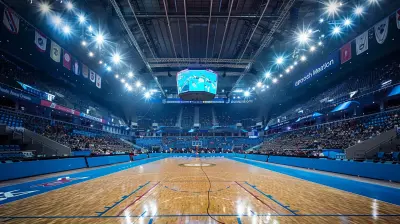How to Pick the Best Cricket Bat for Your Playing Style
28 August 2025
Choosing a cricket bat isn't just about grabbing the flashiest one off the shelf or going with what your favorite player swings. It's a personal decision—a bit like choosing the right pair of shoes. You want something that matches your style, feels right in your hands, and gives you confidence every time you step out to bat.
In this guide, we're diving deep into the art of selecting the perfect cricket bat for your playing style. Whether you're a budding opener, an aggressive slogger, or a technique geek who thrives on timing, we’ve got you covered.
Let’s break down the key things you need to know—with zero fluff and 100% helpful stuff.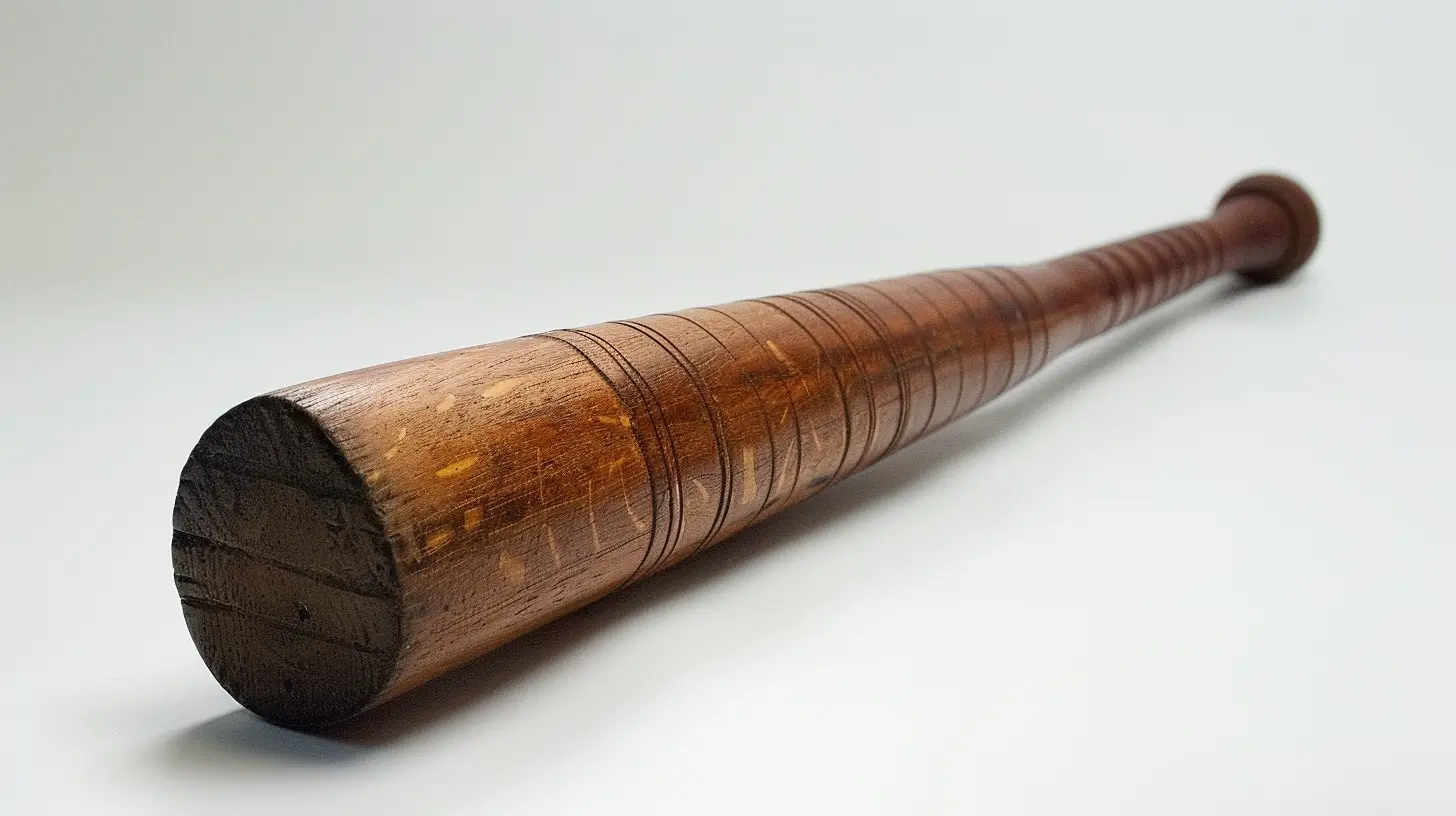
🏏 Why the Right Bat Really Matters
You could have the best cricketing brain, the sharpest footwork, and reflexes like a cat, but if your bat doesn’t suit your style, you’ll always be fighting an uphill battle.Picture this: You're a backfoot player, but your bat’s thick bottom-heavy profile keeps dragging you down. Or you’re trying to play wristy flicks all day with a heavy blade that slows down your swing. Not ideal, right?
So, choosing the right bat is like choosing the right weapon in battle. It complements your strengths, covers your weaknesses, and lets your natural game shine.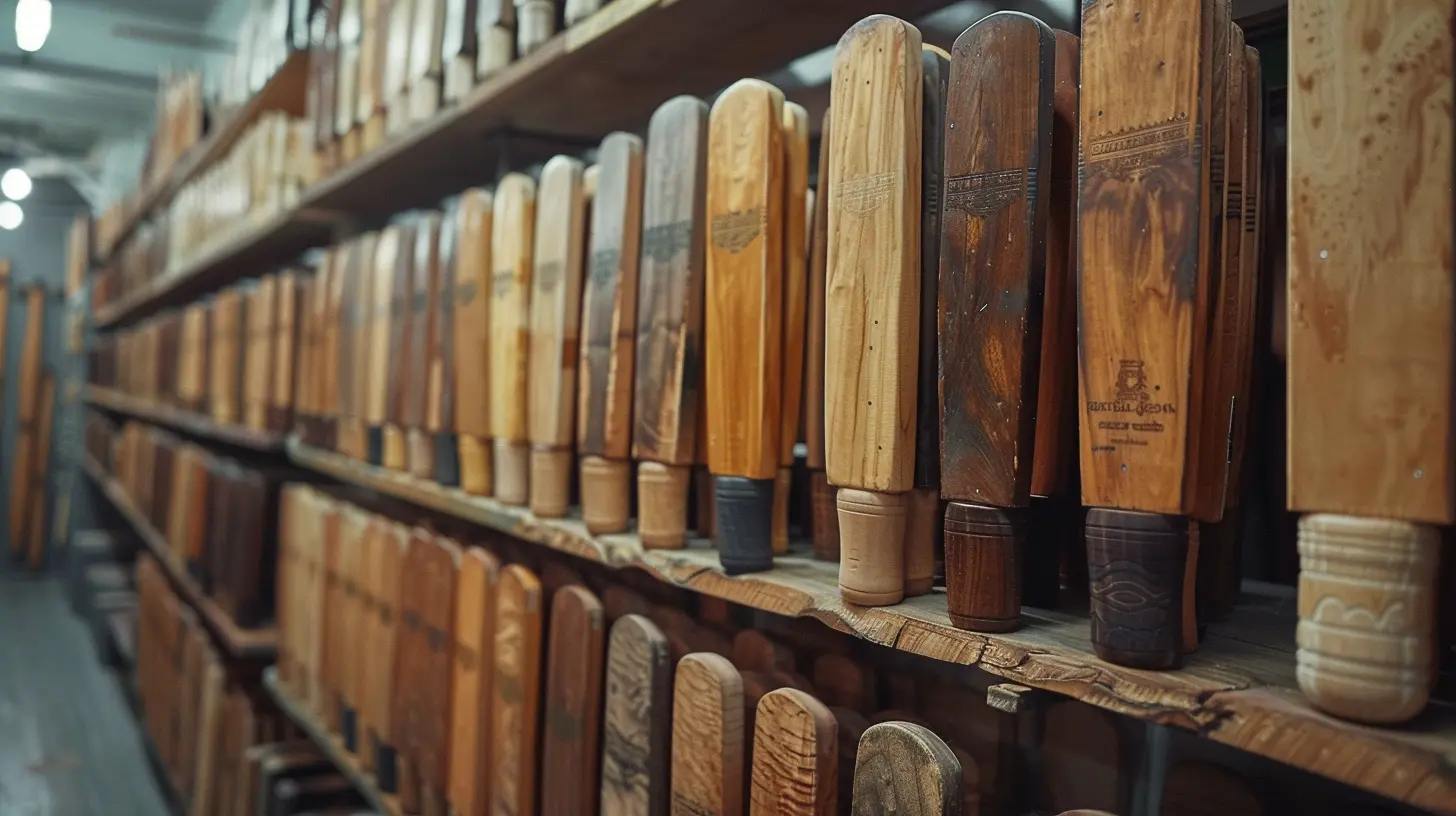
🧠 First Things First: Know Your Playing Style
Before you even think about grains, sweet spots, or willow types, ask yourself this simple question:What kind of player am I?
Let’s break it down.
1. The Classic Stroke Player
You love to time the ball. You’re not out there to muscle sixes—you rely on placement, technique, and precision.Your ideal bat: Lighter profile, mid to high sweet spot, balanced pickup. This lets you maneuver the bat easily and play those elegant drives and late cuts like a pro.
2. The Power Hitter
You see the ball, you hit the ball—simple. You’re the go-big-or-go-home type who lives for boundaries.Your ideal bat: Heavy bat, thick edges, low sweet spot. You need that extra oomph behind your swing to clear the ropes even on mis-hits.
3. The All-Rounder
You’re a bit of everything. Sometimes you open the innings, sometimes you finish games. You need versatility.Your ideal bat: Something in the middle. Medium weight, mid sweet spot, well-balanced pickup. Basically, a bat that can adapt as you do.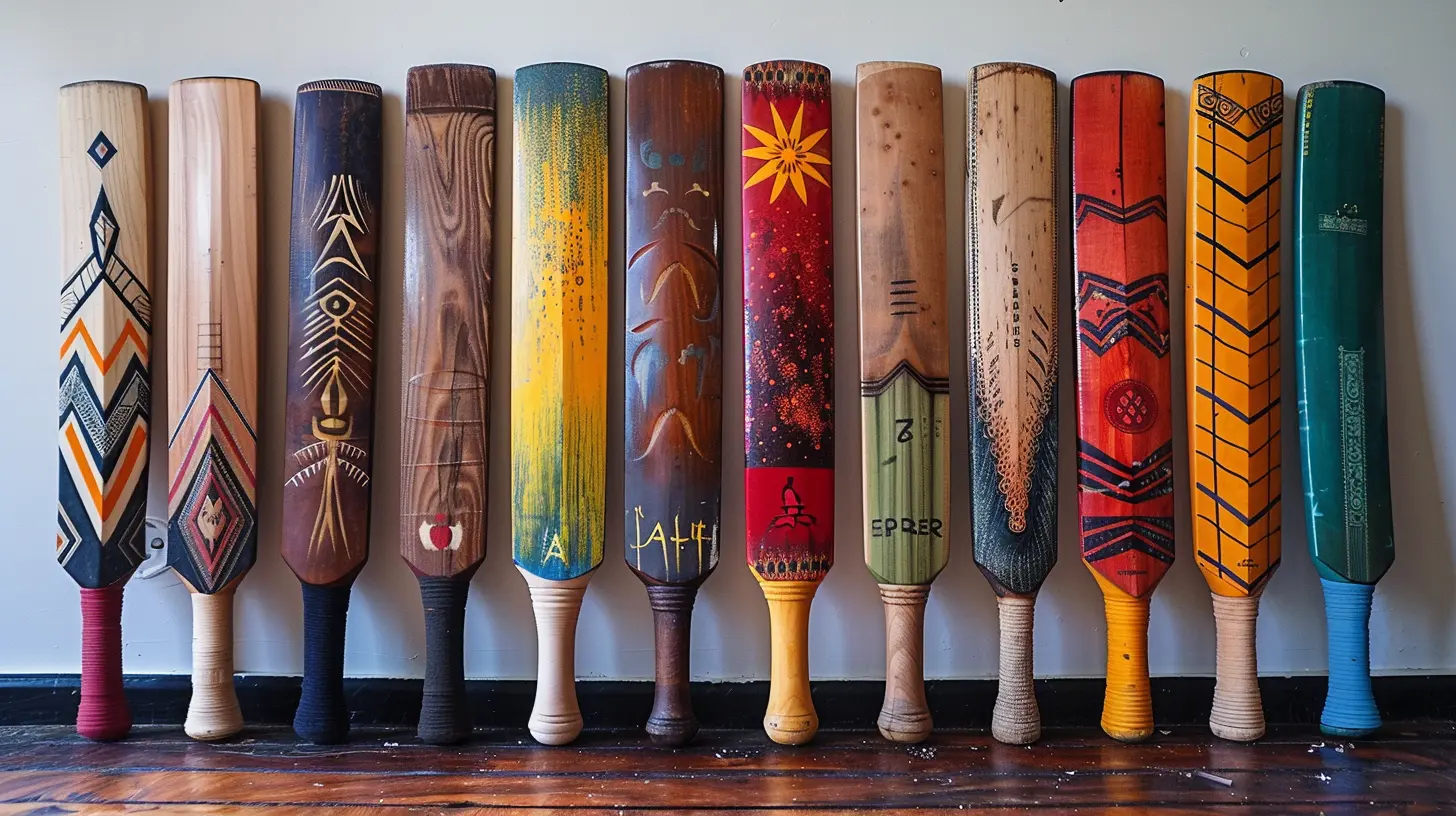
🪵 English Willow vs Kashmir Willow – What’s the Difference?
Alright, let’s talk wood—because not all willows are made equal.English Willow
- More expensive- Softer and higher performance
- Used by professionals
- Better ping and feel
- Needs more maintenance
Best For: Serious cricketers who play regularly and want top performance.
Kashmir Willow
- Cheaper- Harder and more durable
- Slightly heavier
- Less ping but great for beginners
- Low maintenance
Best For: Beginners, casual players, or those on a budget.
💡Pro Tip: If you’re playing leather ball cricket regularly, English willow is your best bet. For tennis ball or occasional games, Kashmir willow will do the trick.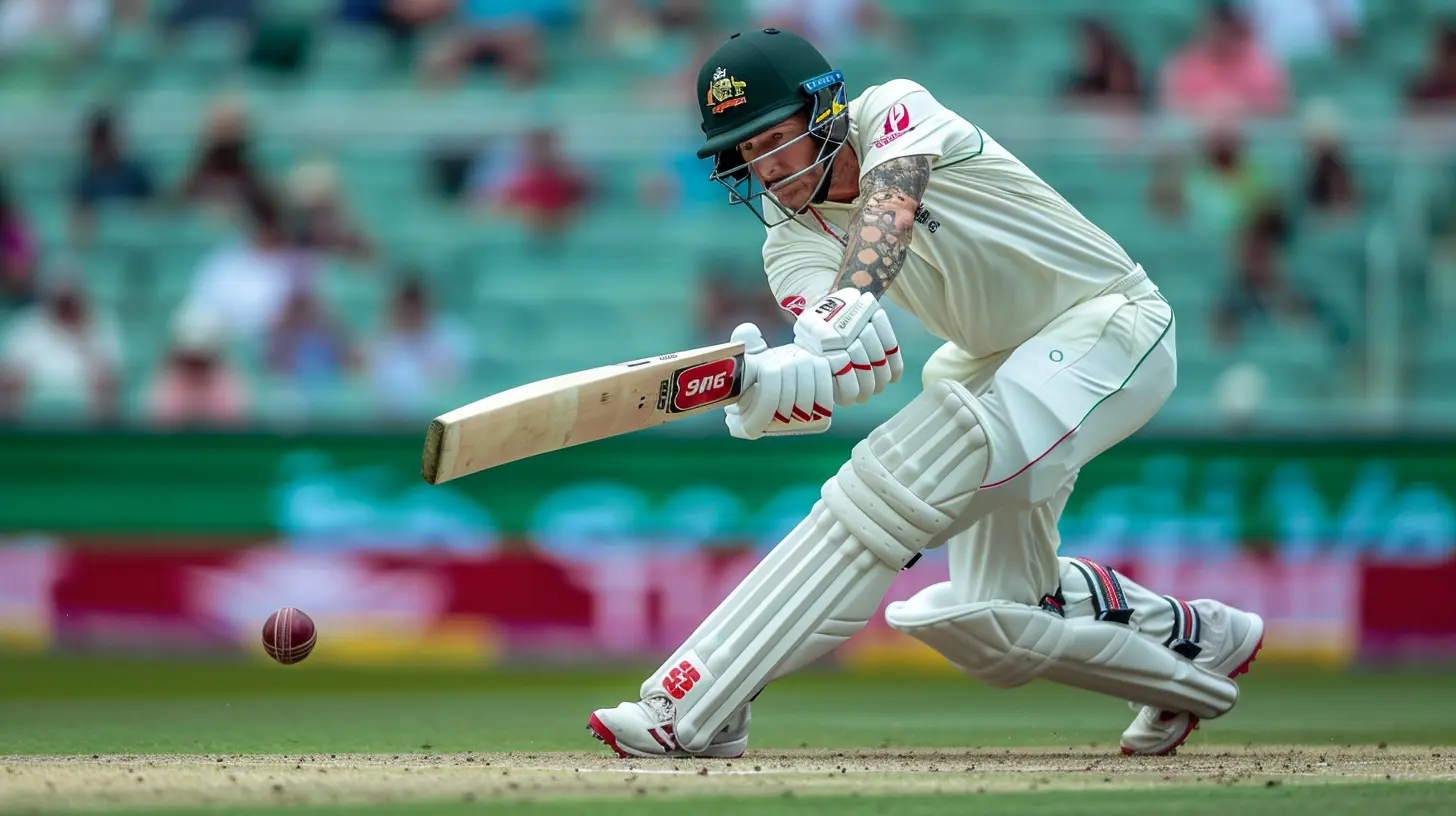
⚖️ One Size Doesn’t Fit All: Picking the Right Bat Size
Think of bat size like shoe size—it has to fit YOU. A bat that’s too long or too heavy can mess with your timing and shot selection.Here’s a quick guide (for full-size bats):
| Player Height | Recommended Bat Size |
|---------------------|----------------------|
| 5’7” and above | Full Size (SH) |
| 5’3” – 5’7” | Small Men’s (SM) |
| Below 5’3” | Youth Sizes |
Balance and Pickup Matter
Even if two bats weigh the same, they can feel totally different in your hands. That’s where "pickup" comes into play.Want a test?
Hold the bat out horizontally with one hand. Does it feel light and balanced? That’s a good pickup. Feels like it’s dragging your wrist down? Too heavy.
🎯 Understanding the Sweet Spot
Ah yes, the mysterious sweet spot—the part of the bat where dreams come true and boundaries are born.There are generally three types:
Low Sweet Spot
- Ideal for front foot players- Suits slow, low pitches (like many found in subcontinent)
- Great for slogging and driving
Mid Sweet Spot
- Best for all-round stroke play- Suitable for most pitch conditions
- The most versatile option
High Sweet Spot
- Perfect for back foot players- Great for short-pitched deliveries and fast bouncy tracks
- Helps with horizontal bat shots (read: pulls, cuts)
So, where do you usually score your runs—from on the front foot or back foot? Your answer will lead you straight to your ideal sweet spot position.
🧱 Bat Profiles and Shapes: More Than Just Looks
Let’s nerd out a little.Full Profile vs Concave Profile
- Full profile bats have more mass across the blade. More power, thicker edges, solid for big hitters.- Concave profile bats are scooped out at the back to reduce weight without sacrificing size. Ideal for balance and pickup.
Spine Height
A higher spine usually means more power behind your shots, but may also add to the overall weight.Edge Thickness
Bigger edges = more forgiveness. Mishit it? Still might go for four. Thinner edges? You’ll have to middle it more often.💪 Handle Types – Your Power Channel
The handle might not get as much attention as the blade, but it plays a HUGE role in how the bat feels and performs.Round Handle
- Ideal for bottom-hand dominant players- Promotes aggressive, power-hitting strokes
Oval Handle
- Better for control and balance- Ideal for top-hand dominant, classical batsmen
Go with what feels natural in your hands. There's no right or wrong—just what suits your grip and shot selection.
🛠️ Toe Shapes – Not Just Aesthetic
Yep, even the toe (bottom part) of the bat matters.- Flat Toe: Modern look, better in stance, but may be more prone to damage.
- Round Toe: Traditional and offers extra durability.
- Square Toe: Helps align the bat in stance but isn’t as commonly preferred.
🧤 Don’t Forget the Grip!
If your bat slips or feels awkward, you’re not going to play your shots with confidence. Simple as that.Try different grips—some are thicker, some are softer. Some players even layer two grips for more cushioning and better control. Again, it's all about feel.
💸 Budget Time – What Should You Actually Spend?
You don’t need to drop hundreds of dollars to get a good bat. But like most things in life: you get what you pay for.Budget Guide:
- $30-$60: Entry-level Kashmir willow (great for beginners)- $60-$150: Mid-range English willow (for regular club cricket)
- $150-$400+: Premium grade English willow (for serious and competitive players)
Remember, a well-maintained mid-range bat can often outperform an expensive one that's not looked after.
🧽 Maintenance Tips - Because Bats Deserve Love Too
Got your dream bat? Sweet.Now keep it match-ready with these simple steps:
- Knock it in: Don’t skip this! Use a mallet or a soft leather ball to prepare the bat for match use.
- Oiling: Light coats of raw linseed oil help keep the willow hydrated and healthy.
- Avoid wet conditions: Moisture is the enemy. Keep it dry and store it smart.
- Toe guard: Protect that toe from wear and tear.
Take care of your bat, and it’ll take care of your cover drives.
🧪 Testing—Try Before You Buy
If you can, always test a bat before purchasing. Swing it. Tap it. Feel it.Some shops even let you take a few practice strokes. Use that opportunity to sense if the weight, balance, and grip feel right.
Still unsure? Ask teammates or your coach for recommendations—they might notice things you overlook.
✅ TL;DR: Quick Checklist to Pick Your Perfect Bat
- ✅ Know your playing style- ✅ Choose between English or Kashmir willow
- ✅ Get the right size and weight
- ✅ Pick the sweet spot that suits your footwork
- ✅ Decide on profile, handle type, and toe shape
- ✅ Stay within your budget
- ✅ Knock it in and maintain it well
🏁 Final Thoughts
Cricket is as much a mental game as it is physical. If your bat doesn't feel right, your confidence takes a hit. But when you pick up a bat that matches your style—it feels like magic. Every shot flows, every connection feels clean, and you just know… this is the one.So take your time, swing a few bats, and trust your gut. Because the right bat might not make you a legend—but it’ll sure make you feel like one.
all images in this post were generated using AI tools
Category:
Sports EquipmentAuthor:

Preston Wilkins
Discussion
rate this article
1 comments
Tamsin Palmer
Great article! Choosing the right cricket bat can truly enhance your game. Your tips on matching bat features to playing styles are incredibly helpful. Looking forward to trying some of these suggestions on the field. Keep up the fantastic work!
September 10, 2025 at 2:56 AM

Preston Wilkins
Thank you for the kind words! I'm glad you found the tips helpful. Best of luck on the field!


